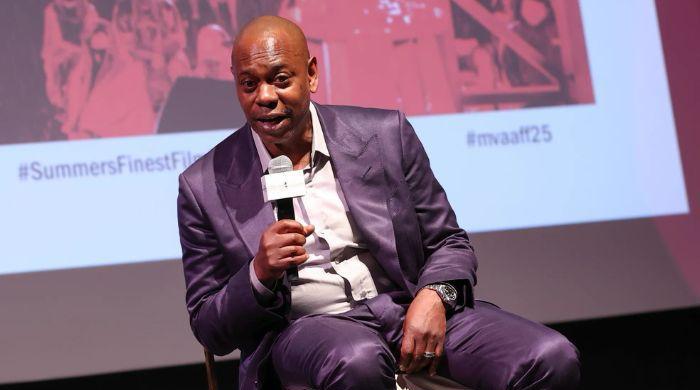Walter Becker, rock bohemian of Steely Dan, dead at 67
His death was announced in a brief notice on his official website, with no further details released
September 04, 2017

NEW YORK: Walter Becker, a bassist whose eclectic tastes from jazz to reggae helped create the intricate bohemian rock sound of Steely Dan, died Sunday aged 67.
His death was announced in a brief notice on his official website, with no further details released.
Becker in July missed The Classic East and The Classic West — twin festivals in Los Angeles and New York featuring rock veterans, including Steely Dan — with his bandmate Donald Fagen saying Becker was recovering from an unspecified ailment.
A New York native, Becker met Fagen while studying north of the city at Bard College. The pair moved to California where they gained both mainstream and underground recognition for their artistic brand of rock.
Steely Dan — named for a phallic toy from Beat novelist William S. Burroughs' classic novel Naked Lunch — shared elements of jazz by enlisting a revolving cast of musicians and jamming out in winding tunes that gave ample space for solos even while keeping pop melodies.
Mourning his co-songwriter, Fagen said in a statement that Becker had a "very rough childhood" which he overcame with wit and singular talent. "He was cynical about human nature, including his own, and hysterically funny," he said.
"Like a lot of kids from fractured families, he had the knack of creative mimicry, reading people's hidden psychology and transforming what he saw into bubbly, incisive art," said Fagen, who promised to keep performing Steely Dan's music.
With Fagen on vocals, Steely Dan created songs with literate and often cryptic lyricism.
"Do It Again (at the Record Plant)," one of the band's best-known songs, describes a character named Jack who attacks a man who stole his water but goes unpunished.
Rock by way of jazz and reggae
Steely Dan was inducted into the Rock and Roll Hall of Fame in 2001 but never reached number one on the US charts, reaching a height of number four with the 1974 song "Rikki Don't Lose that Number."
Becker — who eventually also took up the guitar — said he grew up listening to jazz greats including Miles Davis, John Coltrane, and Sonny Rollins.
While resisting the "jazz fusion" label, Becker acknowledged that jazz informed Steely Dan's way of recording — smooth and polished.
"It was our perception that if you were going to use jazz harmonies, it had to sound tight, professional; nothing sounds worse (and) sloppy than kids playing jazz," he told Time Out New York in 2008.
As Steely Dan gained fame, Becker's life turned turbulent as he wrestled with drug use. He faced legal action after his girlfriend died of a drug overdose in his apartment in New York, where soon afterwards he was hit by a taxi and injured.
Becker moved to Hawaii where he set up a studio and started a second career as a producer, notably for China Crisis, a pop group from Britain where Steely Dan enjoyed a particularly sizable following.
A reformed Steely Dan won the prestigious Grammy for Album of the Year for its 2000 album Two Against Nature.
Becker released his second album Circus Money, in 2008, in which the bassist experimented with his love of reggae.
In an interview for "Circus Money" with the blog No More Big Wheels, Becker described his fascination both with the rhythms of reggae and with Jamaican culture and said reggae had always been part of the mix for Steely Dan.
"I used to describe what we did as disco-jazz-space-funk-muzak with a little bit of reggae. It is a sort of a polyglot thing."









